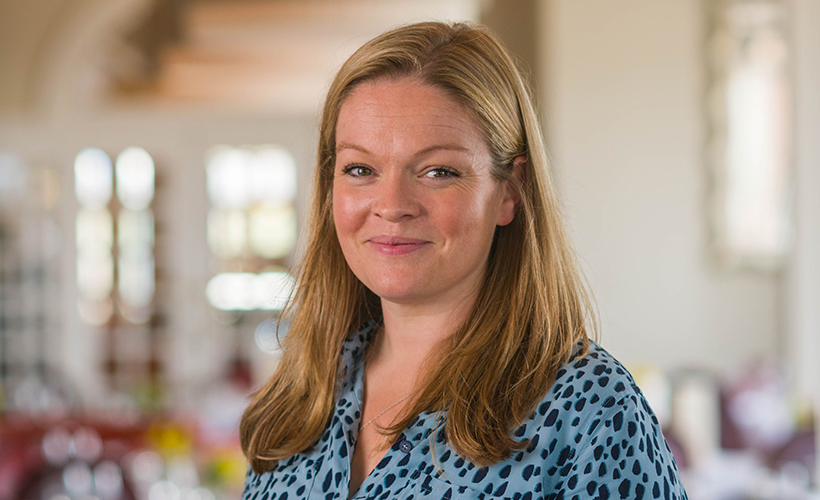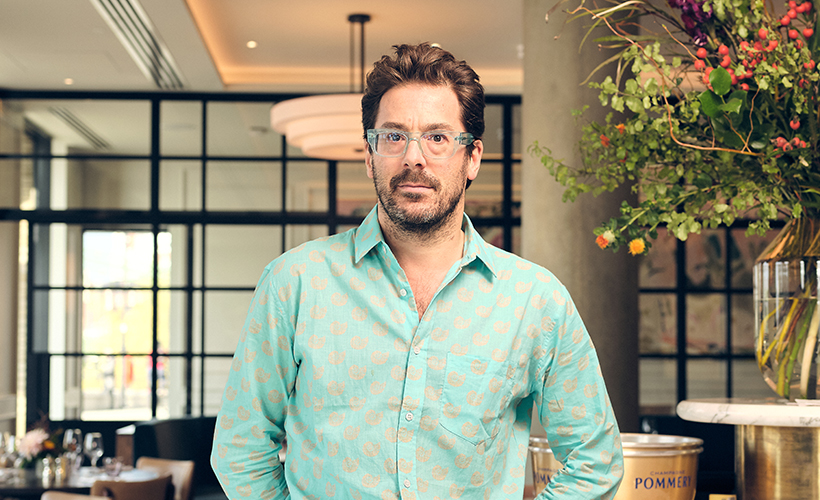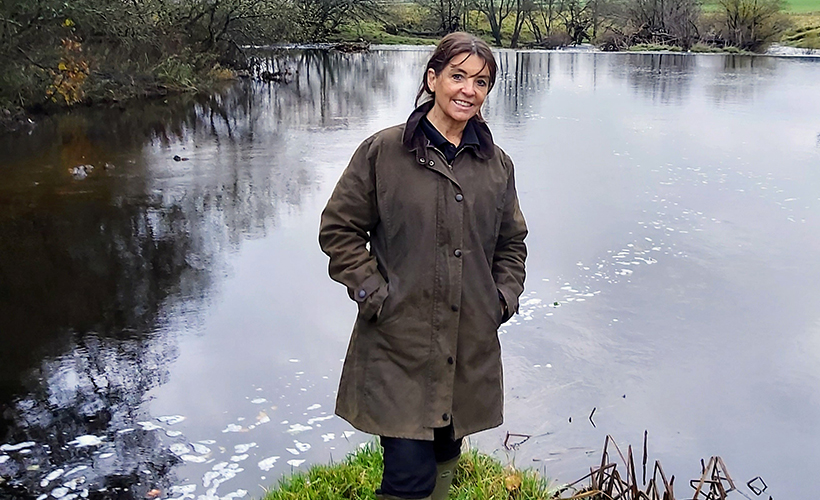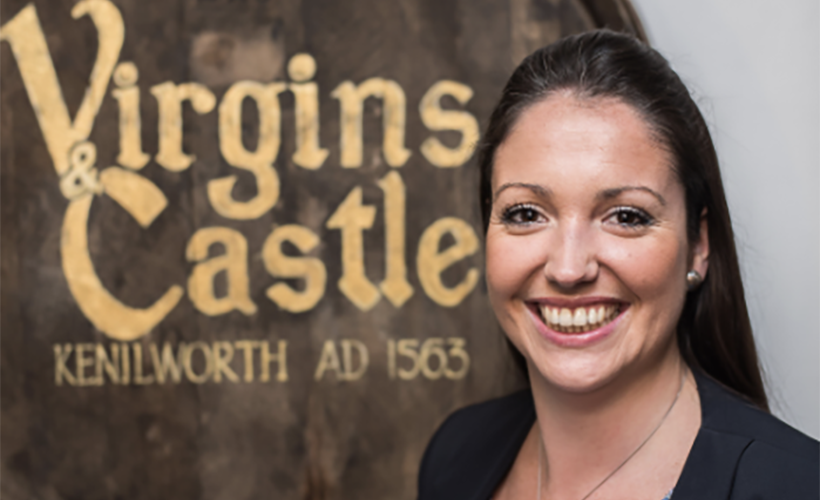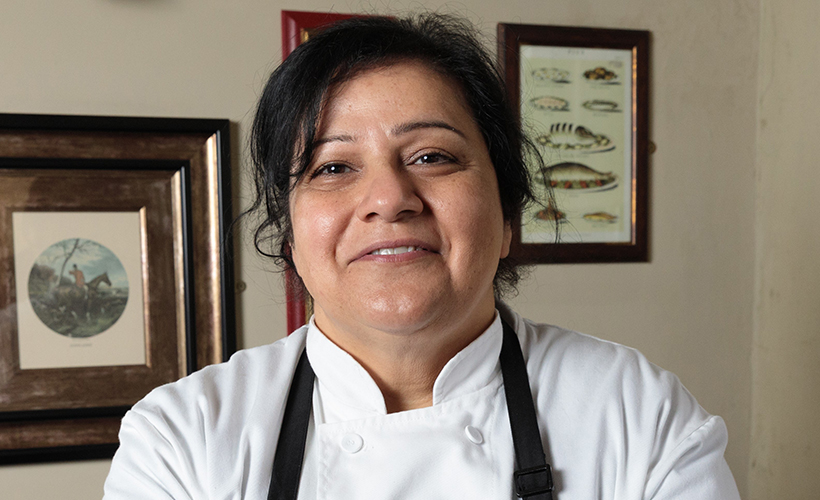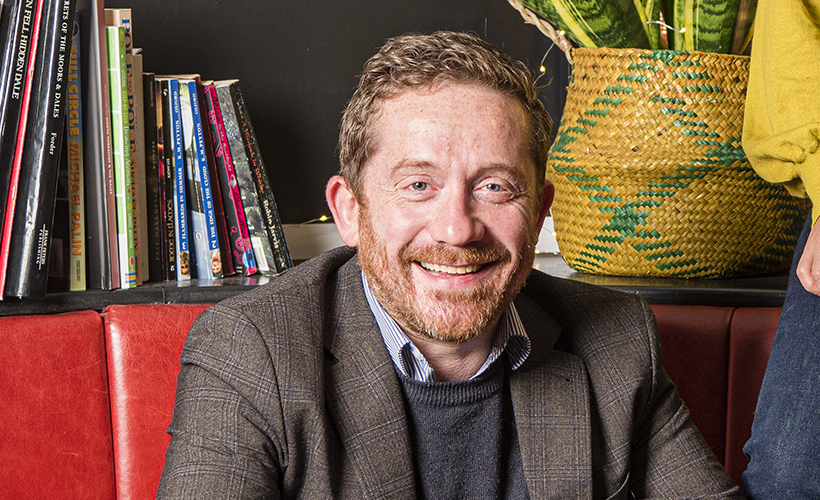In the fourth entry into their summer diaries, our operators look at the small and more significant steps they are taking to create a sustainable future, from planning solar panels to giving jobs to those who need help with employment, or serving up food from just a few fields away
Veryan Palmer, director, Headland hotel, Newquay
We've very much focused on community sustainability. Some of the areas in Newquay are within the 30% most deprived in Europe and so we have done a lot of work supporting local people.
We're a living wage employer and other than those staff who request seasonal work or casual hours, maybe to chase the surf or to help with childcare, we only offer permanent roles.
We have our 14- to 16-year-old summer placement scheme and we also work with a number of the alternative provision schools in Cornwall to offer meaningful work experience and placements for people with additional needs or those that have fallen outside the mainstream education system. We've had some lovely young people who are now working with us in full- and part-time roles, that were potentially falling outof employment, education or training.
When it comes to more green sustainability practices, we are just starting to roll-out the replacement of single-use plastic toiletries in our bedrooms and cottages with the Molton Brown glass bottle dispenser system, which is amazing and will save 77,000 single-use plastic bottles from our waste chain. We're so excited to finally do this – we've been waiting since April because of a global glass shortage.
The system is very expensive but the Molton Brown team were amazing at helping us understand how much of a big step it would be in terms of our sustainability. The company uses British-grown herbs, it's all made in the UK and it very much supports our strategy of people, planet, profit in that order.
We're also looking at solar panels, but we have to go through listed building consent for that, which will be very challenging. Our energy bill has now gone from £340,000 to £3m, according to the latest quote. Our new restaurant and kitchen is all induction and if we could install solar panels, that could power the entire kitchen and return some energy into our additional requirements, which would be amazing. But of course, we have to protect our beautiful Cornish clifftop, so we will work with the listed building team to discuss what is appropriate for our location.
Sam Harrison, founder, Sam's Riverside, Hammersmith, London
We work really closely with Hammersmith Community Gardens, which has this incredible urban farm in White City. In quite a gritty, urban area of West London, there's this one-acre incredible farm and that's our charity of choice.
They do incredible things within Hammersmith and Fulham borough for people with mental health problems, particularly men living alone who might not be good at reaching out. They also do a lot of community outreach with kids who probably have no idea where tomatoes or strawberries come from – they get involved with the farm and they get to grow and pick things.
One of the trustees used to be a regular of my restaurant in Chiswick and when we were setting up Sam's Riverside she said the farm would like to have a partner. So we put £1 on every bill and in return we get amazing peaches, plums, apples and pears, and in the summer we had asparagus and strawberries. We raise between £30,000 and £40,000 a year for the farm, which helps keep it going.
Last year we also did eight events there in the evening. We've not been able to do as many this year, but for every ticket we sold we had a £25 donation to the farm, so we raised at least £1,000 each night. At these events I do a little talk about the amazing work they do and often people ask ‘where can I write a cheque? How can I donate more?'.
One guy who owns a high-end kitchen company came to the farm and saw it had an old pizza oven – one of our chefs was going along to do a pizza evening for the kids, using the produce they'd grown – so the guy donated two brand new amazing pizza ovens. It really does have an impact.
During August we also spent three weeks supporting Fulham Reach Boat Club, a rowing club that is right next to us. Traditionally, rowing is a relatively smart sport that you have to have money to access, but during the summer they do three weeks of local engagement for kids from deprived backgrounds who wouldn't normally have the chance to go near a rowing boat. We provide their breakfast, lunches and teas and it's amazing watching these kids come to collect their food – you see how nervous they are to start with and by the end of the week they've got real confidence.
I feel strongly that a local restaurant has to give back. We've got a responsibility to work with our local community.
Debrah Dhugga, COO, the Apartment Group
In terms of sustainability in our group we have worked hard in our F&B teams and in our kitchens to be plastic-free as much as we can, avoiding the obvious things like plastic straws. We've also looked at our packaging to make sure it is biodegradable where possible and worked with our suppliers to use wooden cutlery for all our takeaway offers in our cottages and with food purchased from our pubs. We choose local suppliers for our meat, fish and veg, reinvesting back into the community and ensuring fewer food miles, as well as reducing transport costs.
We have implemented many projects that champion positive waste product usage, with repurposed leftovers used in specials of the day, such as soups, stocks and sides. We also feed leftover vegetables to some of our farm animals, we use old bedsheets as rags and dusters, and we re-purpose wood from around our sites to design focus points in our rooms.
Our recently purchased farm will of course be fully used, and we will be growing herbs and vegetables, getting the team involved with incentives to encourage them to commit to a sustainable future. Our chefs already work hard on their seasonal menus buying the best produce with the longest shelf life at a competitive price.
We promote our outdoor spaces to our customers and staff to push the eco-friendliness of these spaces for health and activity, and we continue to work with our younger team members who have a passion for sustainability with incentives in place at each venue to develop our sustainable agenda.
Having said all of this, some sustainability initiatives are not practical right now as we are in a crisis with the energy increases and the cost of living. You have to pick the initiatives that are achievable and help save you money, and to get the balance right between the need of the venue and the business.
I've looked at my personal travel options, with an emphasis on combining my trips around the business and doing more to support the local communities. What you do depends on the business and if sustainability projects are achievable. We promote small and regular brainstorms with the teams, and encourage people to step outside of their comfort zones – we pick up ideas from everyone.
The subject of sustainability will continue to grow, especially because of how costs are for all businesses currently – we all have to expand our knowledge in the subject and practice more social and environmental projects.
Julie Crump, COO, Caviar & Chips
Things are ever so slowly starting to tail off from the busy wedding season. But while we have fewer mid-week weddings, September is still full-on – we have five this Saturday before it calms down to two or three in October. Although we're focused on delivering this year's cohort of weddings, we still have lots of planning for the coming years and tastings for our future couples. What we've found interesting is how trends are changing in relation to both sustainability and the cost of living crisis.
When it comes to the food, we've always tried to encourage our couples of think about seasonality as the produce is always fresher and more vibrant when eaten in season. If a couple really wants something, of course they can have anything they want, but we feel it's our responsibility to guide them. As we tend to attract foodie clients, we often have couples ask questions about our suppliers and want to source local produce – they are reducing their carbon footprint and supporting local businesses at the same time.
We're also seeing a move towards plant-based dishes. While only about 5% of our weddings are purely vegetarian or vegan, couples are making decisions based on their guests and might drop the meat and fish from their starter and choose something like a beautiful caprese salad when British tomatoes are in season. Guests understand they are enjoying the same style of food, but you don't need to have it filled with meat or fish.
We also work with couples on food waste, for instance, when to serve the wedding cake to ensure it gets eaten. Some couples like to opt for it in lieu of dessert, others like to serve it as part of the evening food, some don't like wedding cake at all and choose a cheese tower, which becomes the evening food.
Internally, we're looking at things like car sharing to get to venues to save our carbon footprint and reduce fuel costs. And at the end of the day many of these sustainable decisions and doing the right thing have an impact on the bills and cutting costs, so it all goes hand in hand.
Stosie Madi, chef and co-owner, the Parkers Arms, Newton-in-Bowland, Lancashire
Sustainability has always been how we've survived as a rural pub. It's been a very energy-saving summer anyway, as it's been so warm, but I'm the first to be sustainable in the kitchen. We buy our animals in whole and butcher them ourselves. Every bit of meat and bone is used, with premium cuts alongside the cheaper cuts.
We're very much an artisan business, everything we do is made fresh daily, the menu is short and there is no waste.
It's grouse season and I'm very happy to use the birds that are shot around us.
I serve the bird as part of a three-course meal for £55, which is an unbelievable price. We get the grouse in feather and then pluck them ourselves, roast them and use every part, including the heart and liver. The feathers are given to painters and local art schools for the kids to use in projects, and we also save them for Christmas decorations and make wreaths. Absolutely nothing goes to waste at the Parkers Arms.
We have pheasants on the menu from November, partridge starts at the tail-end of September and in October we get wild duck. These are festive things to eat and are on our doorstop and we don't have to pay premium dollar for them.
We're taking orders for our Christmas hampers from now until around mid-November. Since we started doing delivery boxes over the pandemic, they've been very popular. We make game pies and terrines and create preserves, sauces and jellies, using what we've foraged from the hedgerows. We stuff whole pheasants and ready roast them so they can be served on Christmas Day, either sliced as part of a cold plate or hot with a jus.
It shows how we use the countryside. This is the time of year we also start steeping our damson or sloe gins ready for the festive season. We sell them in hampers or in the restaurant alongside things like apple vodkas and pickled pears and plums. It's all go at the moment and a very busy time for us.
James Ratcliffe, co-owner, the Black Bull, Cumbria
We've noticed that people are a lot more interested in where their meat comes from. There's much more awareness about it than there previously might have been. It's very important to us, too, because we're known for our meat. Serving good quality, carefully sourced meat is key to Nina's [Matsunaga] cooking – she even did a masters in food policy, which included a module on sustainability.
Since we've moved to Cumbria, we've been really lucky with our local farmers and suppliers. It's not the most crop-friendly region of the UK, so meat is one of our natural and local products. We make sure that we use heritage, grass-fed breeds across our menu offering. We're also one of the rare places that offer nose-to-tail, as we take the whole animal. For example, at the Meatopia festival, we had a whole cow and used different cuts throughout the day. It's a difficult process but it makes a world of difference.
Another thing I would add is that people seem to say ‘local' a lot these days, but if something is local and being kept in a barn and only being fed rubbish like ‘cake' [pellets], which is just 50% water, then that's not very good. You've got to be careful. Being local is a good start, but it needs to tick all the other boxes, too, like how it's being fed, how it's being reared, and how far it goes to slaughter.
I would say that championing sustainability comes with eating less meat, or at least eating better meat that is ideally produced through regenerative farming. At the same time, sustainability is a very complex issue that can't just be solved by planting trees on land that might be better suited to rewilding, or saying vegetables are the only way forward because you have to consider the emissions that come from shipping. At certain times of the year our greengrocer tells us it would be cheaper to buy Italian asparagus instead of British, but of course we sell British so it's not just about cost. To prevent getting desperate for vegetables over winter, we preserve, pickle and ferment earlier in the year.
Cumbria doesn't have a food waste disposal unit at the moment, but we're looking at that and considering switching to renewables in the long-term. Our aim is to ensure we are consistent with our sustainability aims, both in the restaurant and our rooms. There's no point prioritising one over the other because it's all part of the same business.
We're taking small steps, like using refillable toiletries in the rooms, but it is tricky and we're still learning.
Where to save energy
Richard Felgate, director at Hospitality Energy Saving and former chairman of the Energy Managers Association, on where to start when cutting back on energy use
A question we are often asked is where should I start when reducing my energy consumption, particularly if I haven't got detailed knowledge of the specialist equipment in hospitality businesses. Well, the good news is that there are plenty of things everyone can do on a daily basis that will help you save money. No one sets out deliberately to waste energy, but most of us do because we do things the way we've always done them. In order to deliver some immediate savings, we need to review our daily routines and break some of those existing habits. Here are some areas to look at:
The morning start-up Who are the first people on-site? Cleaners? Chefs? What are they doing and what do they turn on? It's likely that equipment, such as lighting, dishwashers, coffee machines and some kitchen equipment will be turned on long before they are required.
What do you use for cooking? Often all of the equipment is turned on just because it's there, particularly at quieter times of the day or for periods such as breakfast service. Do you really need the salamander on for cooking toast and bacon? You could use a toaster and cook the bacon in the oven that's already on for other products. Do your cold prep first, then turn on your cooking equipment for hot prep.
Duplicate equipment Don't turn on extra ovens, grills or glasswashers unless you're really busy. The equipment will usually be able to cope with a Saturday night or Sunday lunchtime, so you don't need everything switched on for a Monday night.
Does all of your equipment work? Look at equipment controls or timers. A broken time clock for extraction or external lighting could be costing hundreds of pounds a year because you've put off what would be a relatively cheap fix.
Overnight wastage It's really important to ensure that only essentials such as refrigeration and security equipment are running overnight. Walk around the business just before leaving, look and listen for lighting and equipment that's still on. Most areas should be in darkness and silent.
If you start to make the above observations part of your daily routine, you'll soon start to cut out unnecessary energy consumption and reduce your costs.
Continue reading
You need to be a premium member to view this. Subscribe from just 99p per week.
Already subscribed? Log In


